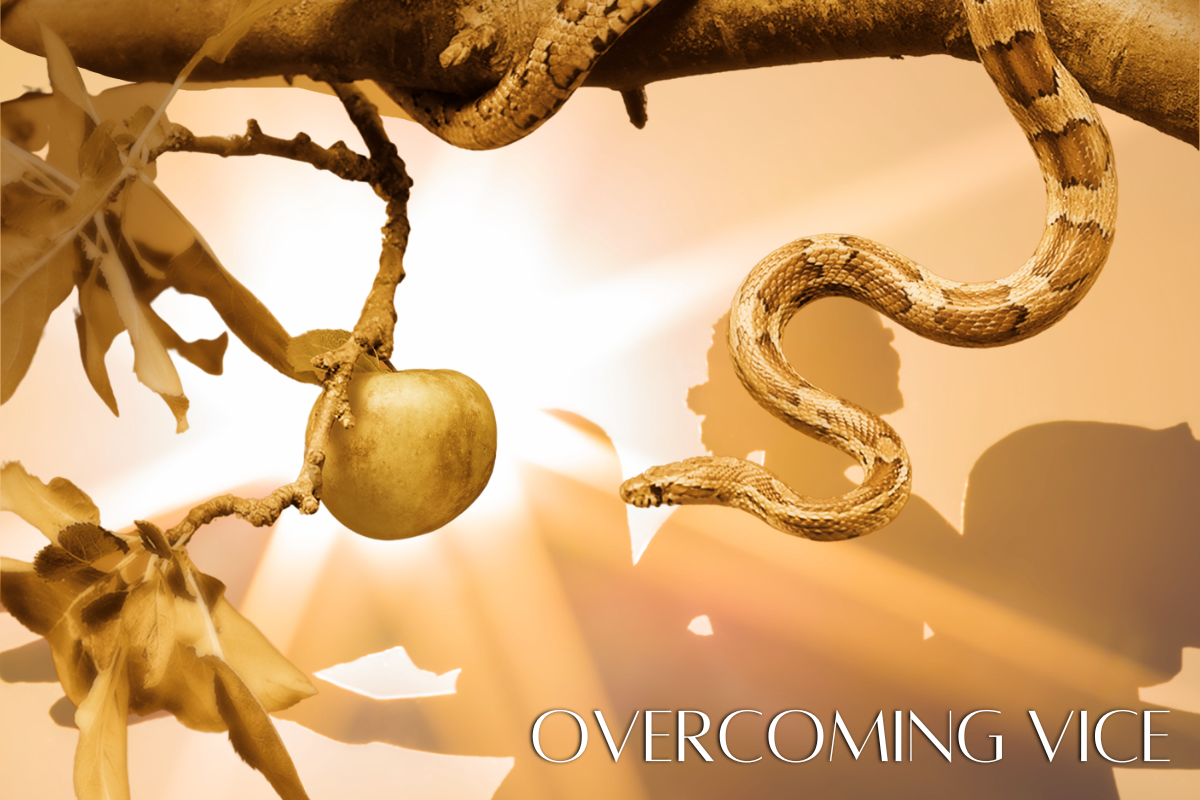In the spiritual battle of good versus evil, virtue is our armor to guard against the temptation of vice. Virtues are rooted in the healthy habits that allow us to readily discern and freely seek that which is good. While virtuous habits promote our disposition of love, habits of vice demonstrate our failure to love.
Last month, we began our exploration into the seven deadly sins and their corresponding corrective virtues. The concept of practicing a good virtue to gain protection from succumbing to an evil vice is derived from the epic poem Psychomachia written by Aurelius Clemens Prudentius during the Middle Ages. Today, we recognize seven capital virtues–also known as remedial or contrary virtues–to counter each of the capital vices:
Humility overcomes pride.
Kindness overcomes envy.
Patience overcomes wrath.
Diligence overcomes sloth.
Charity overcomes avarice.
Temperance overcomes gluttony.
Chastity overcomes lust.
Enlightening ourselves to the spiritual red flags of vice helps us break the cycle of sin and limit our vulnerability to potential attacks. Our response to combat the seven deadly sins is to recognize those behaviors in ourselves and in others, petition God through prayer for the grace to overcome the vice, employ the traits of the remedial virtue, and implement the necessary practical safeguards to prevent the dangers that can stem from the deadly sin.
Overcoming vice and developing virtue work in conjunction with each other and are strengthened by God. This process of cultivating awareness and seeking goodness provides our initial formation toward becoming people of love and developing union with God. Spiritual growth involves tending to the vineyard of our lives. Just as we pull out the weeds that invade our garden, we endure purgation to eliminate the threats that distance us from God. Planting the seeds and fertilizing the land are our steps toward illumination as the Holy Spirit helps to bring us closer to God. The fruit of our harvest is the fulfillment of the Divine Union.
We are personally transformed as we rid ourselves of the finite follies of this world in favor of the infinite glory of God. Saint Athanasius of Alexandria explains, “God became man so that man might become God.” When we imitate Jesus Christ, we act in loving discipleship to shine his radiant light. The way of the world leads to death; the way of the Lord leads through death to everlasting life.
Eternal salvation is achieved through the intimate Divine Union between the human soul and the Divine Spirit. Recognizing that this union of love is what saves us in the end, we must perfect that love through the Sacraments, through corporal and spiritual works of mercy, and through an abundance of selfless charity.
The Bible teaches us the power of God’s promise:
“His divine power has bestowed on us everything that makes for life and devotion, through the knowledge of him who called us by his own glory and power. Through these, he has bestowed on us the precious and very great promises, so that through them you may come to share in the divine nature, after escaping from the corruption that is in the world because of evil desire. For this very reason, make every effort to supplement your faith with virtue, virtue with knowledge, knowledge with self-control, self-control with endurance, endurance with devotion, devotion with mutual affection, mutual affection with love. If these are yours and increase in abundance, they will keep you from being idle or unfruitful in the knowledge of our Lord Jesus Christ. Anyone who lacks them is blind and shortsighted, forgetful of the cleansing of his past sins. Therefore, brothers, be all the more eager to make your call and election firm, for, in doing so, you will never stumble. For, in this way, entry into the eternal kingdom of our Lord and savior Jesus Christ will be richly provided for you” (2 Peter 1:3-11).
We will continue our weekly exploration of the seven deadly sins before progressing into our study of the cardinal and theological virtues. Please share your thoughts about the relationship between virtue and vice. Have you learned anything about yourself after completing our weekly activities? Are you better prepared to limit the behaviors that may lead you to sin? Feel free to also comment on the ways that we can help others overcome their spiritual struggles.



